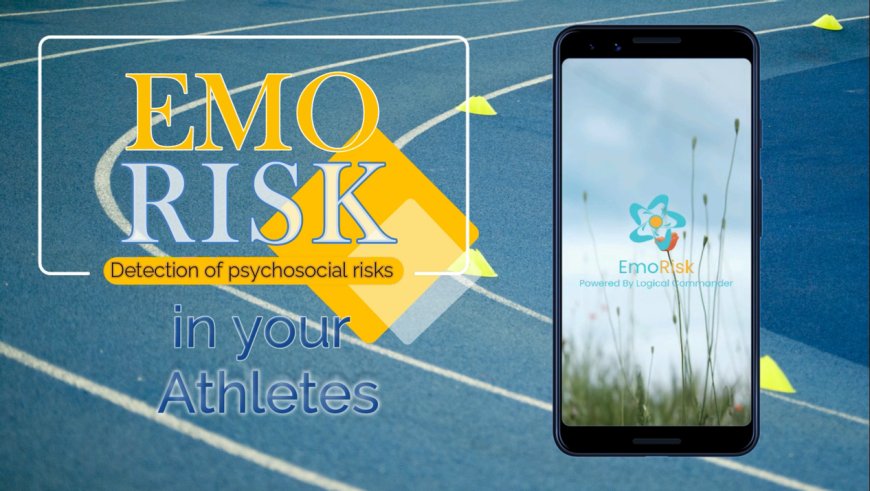Breaking Free from Toxic Systems: A Practical Survival Guide
A comprehensive guide to recognizing, surviving, and escaping toxic systems in workplaces, relationships, religious organisations, and institutions. Learn practical strategies to reclaim your freedom and mental well-being."

By Dr Ohio O. Ojeagbase FICA, FIDR
The term "toxic system" is not universally defined in all academic dictionaries, as its usage varies across disciplines. Below are synthesized definitions informed by scholarly perspectives from different fields:
1. Organizational Psychology/Psychology
A toxic system refers to an organizational or social structure characterized by chronic dysfunction, harmful norms, and practices that perpetuate stress, exploitation, or emotional harm. Such systems often enable abuse of power, suppress dissent, and prioritize institutional goals over individual well-being, leading to burnout, high blood pressures, anxiety, or collective trauma.
Key elements: Power imbalances, lack of accountability, psychological harm.
2. Sociology/Social Theory
In sociology, a toxic system describes a societal or institutional framework that systematically marginalizes groups, reinforces inequality, or normalizes oppression (e.g., racism, favoritism, sexism, classism). These systems sustain themselves through cultural narratives, policies, or unspoken rules that disadvantage certain populations that are not payig homage to their powers.
Key elements: Structural inequity, systemic discrimination, institutionalized harm.
3. Environmental Science
A toxic system can denote an ecosystem or industrial network contaminated by pollutants (e.g., heavy metals, chemicals) that disrupt ecological balance, harm biodiversity, or endanger human health. Toxicity is measured through bioaccumulation, persistence, and adverse impacts on living organisms.
Key elements: Pollution, ecological degradation, health risks.
4. Management/Organizational Studies
In management theory, a toxic system is a workplace or corporate culture that incentivizes unethical behavior, short-term gains, or cutthroat competition. Such systems may reward exploitation (e.g., overwork, wage theft) whilst punishing integrity, fostering distrust and high turnover.
Key elements: Unethical practices, profit-over-people mentality, employee attrition.
5. Systems Theory
From a systems-thinking perspective, a toxic system is one where feedback loops, interdependencies, or policies create self-sustaining cycles of harm. Interventions often fail because the system resists change (e.g., bureaucratic inertia, perverse incentives).
Key elements: Self-reinforcing harm, resistance to reform, unintended consequences.
Note:
Whilst "toxic system" is not always a formal entry in academic dictionaries, these definitions reflect interdisciplinary interpretations. The term broadly signifies any interconnected structure that perpetuates harm to individuals, groups, or environments (overtly or covertly).

Signs of a Toxic System
Identifying toxicity is the first step in protecting yourself from its long-term effects. Here are some key indicators:
1. Fear-Based Leadership
A toxic system often operates under control and intimidation rather than encouragement and support. Leaders in these environments rule through threats, public humiliation, or constant surveillance, ensuring that employees or individuals comply out of fear rather than genuine respect. This creates a culture where mistakes are punished rather than seen as learning opportunities, stifling creativity, innovation, and personal growth. Over time, people in these environments may develop anxiety, high blood pressure that have led some to collapse and die on the way to hospital if not instantly, self-doubt, and a reluctance to take initiative, fearing backlash for any perceived misstep.
2. Lack of Trust
Toxic environments breed secrecy, gossip, and paranoia. Information is often withheld or manipulated to maintain power dynamics, and employees or individuals feel like they’re walking on eggshells. Leadership might monitor communication excessively, encourage backstabbing or favoritism, or create a culture where people feel unsafe expressing concerns. In workplaces, this often leads to micromanagement, unethical practices, and high turnover, as people feel they can’t trust their colleagues or leaders. In personal relationships, this manifests as harassment, intimidation, manipulation, gaslighting, and emotional abuse, where one person controls the flow of information and erodes the other's confidence.
3. Chronic Negativity
A toxic system thrives on pessimism, blame-shifting, and a lack of encouragement. Leaders or participants focus on problems rather than solutions, creating a culture where complaining replaces constructive change. Employees or individuals often feel unmotivated, uninspired, and constantly on edge. In workplaces, this might look like leaders who focus solely on failures, never acknowledging achievements made by the people. In relationships, this could manifest as constant criticism, emotional exhaustion, and the inability to experience joy. Over time, chronic negativity can sap motivation, damage self-esteem, and lead to burnout.
4. Unfair Treatment
In a toxic system, favoritism, discrimination, and double standards are rampant. Rules and consequences are applied inconsistently, benefiting a select few whilst punishing others unfairly if they seem to take a stance that they believe is right. This is particularly evident in workplaces where promotions and rewards are based on personal connections or personal favors done to leadership rather than merit. In personal relationships, it appears as one-sided expectations, where one person’s needs, feelings, or boundaries are ignored whilst the other’s are prioritized. Unfair treatment breeds resentment, fuels toxicity, and reinforces power imbalances, making it difficult for people to thrive and make progress.
5. Emotional Drain
Toxic environments leave individuals feeling emotionally exhausted, anxious, and mentally depleted after interactions. Rather than being uplifting, conversations and experiences drain energy, induce stress, or create self-doubt. Over time, this emotional toll leads to chronic fatigue, irritability, depression, and even physical symptoms like headaches, insomnia, and digestive issues. When your environment consistently takes more from you than it gives, it’s a sign that it’s toxic.
6. No Psychological Safety
Healthy environments encourage open communication, feedback, and vulnerability. In a toxic system, however, speaking up is often punished rather than welcomed and within religious setting the manipulative leaders would call it “rebellion”. People fear retaliation for voicing concerns, challenging authority and in the case of religious environment it is called challenging spiritual authority, or even suggesting improvements. This culture of silence and fear prevents growth, fosters resentment, and traps individuals in cycles of dysfunction. Psychological safety is essential for creativity, trust, and long-term success, whether in the workplace, relationships, or religious settings.

How to Stay Sane in a Toxic System
If leaving a toxic system isn’t immediately possible due to financial constraints, personal obligations, or external limitations, there are ways to protect your mental health whilst navigating the environment.
Navigating Toxic Systems: A Survival and Exit Guide
Toxic environments—whether in workplaces, relationships, or social systems—can have a devastating impact on one’s mental, emotional, and even physical well-being. In Nigeria, where job security is fragile, economic hardships are widespread, and social expectations often discourage people from speaking out, many endure toxic situations longer than they should. However, understanding how to cope and when to leave is crucial for survival and long-term well-being. Here’s a detailed breakdown of strategies to help you navigate toxicity, with practical insights tailored to the Nigerian environment.
1. Recognize It’s Not You
Toxic environments often manipulate individuals into believing they are the problem. This is particularly common in Nigerian workplaces where hierarchical structures foster blame-shifting, gaslighting, and exploitation. Employers may make employees feel incompetent, ungrateful, or disloyal for demanding better working conditions, fair pay, or respect.
In personal relationships, Nigerian cultural expectations sometimes normalize toxic family dynamics, where younger individuals are expected to endure abuse, manipulation, or unfair treatment in the name of "respecting elders" or "family duty or “spiritual leadership." Victims of abuse in marriages are often told to "endure" rather than seek freedom.
Practical Steps:
- Acknowledge the dysfunction: If an environment constantly makes you feel inadequate despite your best efforts, it’s likely toxic.
- Detach from guilt: Understand that asking for fairness, respect, or a healthier social ethical justice environment does not make you wrong even when leadership fails to acknowledge their short sightedness and bad decisions due to inherent kickback that has beclouded their sense of judgment.
- Seek external validation: Talk to people outside the toxic system (trusted friends, mentors, or professionals) for perspective.
2. Set Boundaries
Boundaries are difficult to enforce in Nigeria, where many social structures expect unlimited access to your time, emotions, and labor. In workplaces, employees are often expected to work long hours without additional compensation, while in families, individuals are sometimes emotionally blackmailed into supporting toxic relatives at their own expense.
Practical Ways to Set Boundaries:
- Physically: In a workplace, take regular breaks, avoid unnecessary meetings with toxic bosses, and step away when situations escalate. In personal relationships, limit physical exposure to toxic individuals when possible.
- Emotionally: Refuse to be manipulated into guilt-driven obligations. If a toxic colleague, boss, or family member is always dragging you into gossip, drama, or verbal abuse, disengage.
- Digitally: In Nigeria’s always-online culture, where WhatsApp messages and phone calls are constant, set limits. Mute notifications after work hours, avoid responding to toxic messages immediately, and unfollow negative influences on social media.
3. Protect Your Inner Peace
The stress from toxic environments can consume your thoughts and emotions, making it hard to focus on personal growth or well-being. In Nigeria, the pressure to succeed, meet family obligations, and navigate unstable economic conditions can make it even more difficult to mentally detach from negativity.
Ways to Protect Your Peace:
- Detach Emotionally: View interactions with toxic individuals as transactions, not personal reflections. If a difficult boss criticizes you unfairly, understand that it’s about them, not you.
- Compartmentalize: Keep work stress at work and relationship stress within the relationship. If a toxic family member is draining your energy, do not let it affect your work performance or friendships.
- Develop Reset Rituals: After dealing with toxicity, engage in activities that restore your mental balance — prayer, meditation, music, exercise, or journaling.

4. Build a Support Network
One of the most dangerous effects of toxicity is isolation. In Nigeria, where discussing mental health and toxic experiences is often taboo, many people suffer in silence. Support systems provide strength, reassurance, and a pathway out of toxicity.
How to Build a Support System:
- Find trusted friends or mentors: Identify people who offer genuine advice, encouragement, and emotional safety.
- Join external communities: business small groups, hobby clubs, and professional associations can counterbalance negative environments.
- Seek professional help: Therapists, counselors, or online support groups can offer valuable coping mechanisms and help you strategize your next steps.
5. Document Everything
If you are experiencing workplace exploitation, harassment, or abuse, documentation is your best defense. In Nigeria, where labor laws are poorly enforced, employees often face unjust dismissals, salary delays, or mistreatment without any legal recourse. Keeping records helps protect your rights if you decide to take action or seek another opportunity.
How to Document Toxicity:
- Keep written records of incidents (emails, texts, and memos).
- Maintain a private journal documenting specific events, dates, and people involved.
- If applicable, save screenshots, voice recordings, or eyewitness testimonies.
READ More News:
- The Acting Group CEO of Access Holdings PLC
- Blackmail And Extortion In Nigeria And Consequences
- Tribute To Mrs Titilayo Osuntoki HCIB
- ABUAD Business School and KREENO Forged Strategic Partnership

6. Find Small Wins
Toxic environments can make individuals feel powerless. Focusing on small victories helps maintain motivation and a sense of control. In Nigeria’s competitive job market, leaving a toxic workplace immediately may not be realistic, but setting progressive goals can help create an eventual escape.
Ways to Create Small Wins:
- Develop new skills: Take free or affordable online courses to build expertise.
- Celebrate small achievements: Even minor progress—like finishing a project, networking with a potential employer, or practicing self-care—counts.
- Focus on financial independence: Start saving gradually to fund your exit. Endeavours also to take care of yourself when you are in any system that are selfish in their operations no matter how they try to hide under the cover of displaying psuedo credibility
7. Avoid “Drinking the Poison”
Toxic environments breed toxic behaviors. Many people in Nigeria absorb the negativity around them, becoming cynical, manipulative, or even abusive in response to what they’ve experienced. Staying in a toxic workplace or relationship should not change your character.
How to Avoid Absorbing Negativity:
- Stay true to your values —Don’t adopt unethical survival tactics just to fit in.
- Practice emotional detachment—Be empathetic but don’t carry other people’s burdens.
- Engage in positive self-talk—Remind yourself that you don’t have to become like them to survive.
8. Plan an Exit Strategy
The reality is that toxic environments rarely change. If leaving immediately isn’t possible, start building an escape plan.
How to Prepare for Your Exit:
- Upskill: Take online courses, get certifications, or acquire new competencies to expand your job opportunities.
- Network: In Nigeria, many job opportunities come from personal connections. Build relationships with professionals in healthier workplaces.
- Save Money: Financial dependence is a major reason people stay in toxic situations. Even small, consistent savings can provide an escape fund.
9. Seek Professional Help
Mental health is often stigmatized in Nigeria, but therapy and counseling can provide strategies to cope with toxicityand help rebuild self-confidence.
How Therapy Can Help:
- Provides emotional clarity to understand the toxic situation objectively.
- Helps in developing coping mechanisms to protect mental well-being.
- Guides in building a concrete plan for change.
When to Leave
Whilst coping strategies can help in the short term, staying in a toxic system indefinitely can lead to severe mental and physical consequences. If you experience:
- Chronic stress symptoms (insomnia, panic attacks, headaches).
- A loss of identity or confidence due to manipulation.
- Ethical compromises that go against your values—it’s time to leave.
Leaving a toxic environment isn’t failure; it’s self-preservation. Prioritize your well-being, dignity, and future growth.

Final Thought
Toxic environments can be emotionally, mentally, and even physically draining. They chip away at confidence, self-worth, and well-being, often leaving individuals feeling trapped or powerless. However, these challenging situations can also serve as wake-up calls—reminders that you deserve better and that change is necessary. Every toxic experience offers a lesson, whether it’s about self-preservation, setting boundaries, or recognizing when to walk away. Use adversity as a catalyst for growth, not a reason to settle. Protect your mental health fiercely, surround yourself with supportive people, and take steps toward a healthier environment. Remember: your well-being matters, and you don’t have to sacrifice yourself for others’ comfort. As the saying goes, "Don’t set yourself on fire to keep others warm."
Toxic environments can break you or build you—the choice is yours. Protect your mind, guard your energy, and take steps toward freedom. No one deserves to stay in a place that drains them. As the Nigerian saying goes: "No be everything we go endure. Some things, na to waka comot."
KREENO EMORISK SOLUTION:
Our comprehensive risk detection called EmoRisk is a solution for all organizations (Profit and Not for profit organizations) to evaluate all personnels to detect these psychosocial risks caused by the toxic system.
EmoRisk stands as the first and only technology capable of detecting a wide range of psychosocial risks, including emotional states, stress levels, mental load, burnout, high blood pressures, depression, harassment, and employee attrition tendencies. Gain deep insights into your workforce's well-being and proactively address potential issues before they escalate as we have on good authroity how severak have died because of negligence in not detecting the workforce well-beings.
EmoRisk provides real-time monitoring and immediate intervention indicators, allowing organizations to respond swiftly to emerging risks. By staying ahead of potential challenges, you can intervene effectively, promoting employee well-being and preserving productivity.

HOW DOES IT WORK - IN REAL TIME
RISK HR (Detection, risk management, and Security), & EmoRisk (Psychosocial Risk Detection and Management) systems interact under a smart, fast, simple platform and with real-time results. Allowing our clients to save time and at the same time improve effectiveness, internal risk management, and process information in different areas of the organization in an effective way, helping management make immediate decisions.
EmoRisk Application Areas
EmoRisk is designed to benefit a wide range of professionals across industries including Armed Forces, Financial Institutions, Govenrment, Religious Organizations (Churches and Mosques), Students, Athletes, Healthcare Professionals, Petroleum Industry, All workers, etc.
Why is the detection of psychosocial risks important?
Work stress, violence, and any other psychosocial disturbance in the workplace are conflicts that concern the authorities and become the responsibility of the employer.
The use of technologies that detect psychosocial risks in companies, government agencies, and religious organizations is crucial in promoting a healthy and productive work environment.
Here are some statistical data from the World Health Organization (WHO) and the International Labour Organization (ILO) that highlight the importance of such technologies:
Prevalence of Work-Related Stress:
- The ILO estimates that work-related stress affects over 1 billion workers globally, leading to increased absenteeism and reduced performance.
- In Europe alone, stress-related work absences account for 50-60% of all lost working days.
- The ILO Occupational Safety and Health Convention (No. 155) and Recommendation (No. 164) provide a legal framework to protect the health and safety of workers. However, the WHO Mental Health Atlas found that only 35 percent of countries reported having national programs for work-related mental health promotion and prevention. I do not think Nigeria takes this seriously and that is why human lives count as nothing in both secular and religious settings.
Economic Consequences:
- The ILO estimates that the global cost of work-related stress and mental health conditions amounts to around 4% of global GDP, which equates to trillions of dollars annually.
- Lost productivity, medical expenses, and other associated costs make investing in psychosocial risk detection technologies a financially sound decision for companies.
Proactive Risk Management:
- Early detection of psychosocial risks allows companies to take proactive measures, such as implementing employee support programs, training initiatives, and stress management interventions.
- By identifying and addressing psychosocial risks promptly, companies can reduce the likelihood of workplace conflicts, burnout, and employee turnover.

Legal and Regulatory Frameworks:
Regulations regarding psychosocial risks in the workplace have been established in various regions globally.
Psychosocial risk management has gained increasing attention, with several nations enacting legal and regulatory frameworks to address these issues. While the specific regulations may vary across countries, here are some notable examples:
- United Kingdom: Health and Safety at Work Act (1974): The Health and Safety at Work Act places a general duty on employers to ensure the health, safety, and welfare of their employees. It includes the obligation to identify and manage psychosocial risks in the workplace.
- Germany:
Occupational Health and Safety Act (Arbeitsschutzgesetz): This Act places a duty on employers to assess and manage psychosocial risks in the workplace. It requires employers to identify stress factors, develop preventive measures, and provide support to employees. - France:
Labour Code (Code du travail): The French Labour Code addresses psychosocial risks through provisions related to the prevention of occupational hazards. It requires employers to evaluate and address psychosocial risks, develop preventive measures, and provide information and training to employees. - Sweden: Work Environment Act (Arbetsmiljölagen): The Swedish Work Environment Act requires employers to conduct risk assessments, including psychosocial risks, and systematically address and prevent psychosocial risks, such as stress and workplace bullying. It emphasizes preventive measures.
- Norway:
In Norway, psychosocial risks in the workplace are regulated by the Working Environment Act (Arbeidsmiljøloven).
The Act requires employers to identify, assess, and implement measures to prevent psychosocial risks, including stress and harassment. - Finland:
Finland has legislation in place to address psychosocial risks in the workplace, which is primarily governed by the Occupational Safety and Health Act (Työturvallisuuslaki).
Employers in Finland are obligated to identify and mitigate psychosocial risks, such as stress and workplace bullying.
- Australia:
Work Health and Safety Act (2011): The Work Health and Safety Act requires employers to provide a safe and healthy work environment, which includes addressing psychosocial risks. It emphasizes the duty of care and the importance of risk assessment and control measures.
Safe Work Australia offers resources on work-related stress, bullying, and harassment, including guidelines for preventing and managing psychosocial risks.
Some states and territories, like New South Wales and Victoria, have additional legislation regarding workplace bullying and psychosocial hazards. - Japan: Industrial Safety and Health Act: The Industrial Safety and Health Act in Japan requires employers to take measures to prevent mental health
- Mexican Official Standard NOM-035-STPS-2018:This official standard, issued by the Secretariat of Labor and Social Welfare (Secretaría del Trabajo y Previsión Social - STPS), addresses the identification, analysis, prevention, and control of psychosocial risks in the workplace. It aims to prevent work-related stress and promote a favorable work environment. Employers are required to conduct risk assessments, implement prevention measures, and establish mechanisms for employees to report psychosocial risks.
- Chile introduced Law No. 21,015 in 2017, which focuses on preventing harassment, promoting a respectful work environment, and effectively addressing psychosocial risks. This law requires companies to implement prevention policies, conduct risk assessments, and establish procedures for reporting and investigating cases of workplace harassment.
- How Non Payment Of Your Debt Affect Your Integrity
- Strengthening Fight Against Financial Fraud in Nigeria
- 1.3BN Fraud: Police To Arraign Obanikoro's Son On February 27
- Debt Repayment And Business Ethics: Why Debt Repayment Enhances A Thriving Economy In Nigeria

Does Nigeria Have Comprehensive Regulations Dedicated To Psychosocial Risks?
Nigeria does not yet have a specific, comprehensive regulation dedicated solely to psychosocial risks in the workplace like those found in the European Union or Latin American countries. However, certain existing laws and policies address workplace health and safety, which can be interpreted to include aspects of psychosocial risks. Below are key legal and regulatory frameworks relevant to workplace psychosocial risks in Nigeria:
1. Labour Act (Cap L1 LFN 2004)
The Labour Act governs employment conditions in Nigeria, including fair treatment, workplace conditions, and employee welfare. Although it does not explicitly mention psychosocial risks, its provisions on safe working conditions and fair treatment can be linked to managing workplace stress, harassment, and burnout.
2. Employee Compensation Act (ECA) 2010
This Act, enforced by the Nigeria Social Insurance Trust Fund (NSITF), provides compensation for workplace injuries, disabilities, and occupational diseases. While it primarily covers physical injuries, mental health issues arising from work-related stress or harassment could, in some cases, be argued under its provisions.
3. The Factories Act (Cap F1 LFN 2004)
This law mandates safe working conditions in factories and industrial workplaces. Although its primary focus is on physical safety, some interpretations extend to mental well-being, particularly where hazardous working environments contribute to psychological distress.
4. National Policy on Occupational Safety and Health (OSH) (2020)
Nigeria’s OSH policy, developed by the Federal Ministry of Labour and Employment, promotes a safe and healthy work environment. Whilst it primarily addresses physical safety, it recognizes the importance of psychosocial factors, such as workplace stress, harassment, and work-life balance, in achieving overall employee well-being.
5. The Violence Against Persons (Prohibition) Act (VAPP) 2015
Although not a workplace-specific law, the VAPP Act criminalizes harassment, psychological abuse, and workplace-related gender-based violence. Employers could be held accountable if they fail to prevent workplace violence or harassment, which are significant psychosocial risks.
6. International Labour Organization (ILO) Guidelines and Conventions
Nigeria, as a member of the ILO, has ratified several conventions related to occupational safety and health, including ILO Convention No. 155 (Occupational Safety and Health, 1981). These conventions encourage Nigeria to implement measures addressing psychosocial hazards, such as excessive workload, toxicity, burnout, workplace violence, discrimination, and bullying.

Current Gaps and Future Prospects
Despite these general provisions, Nigeria lacks a dedicated legal framework explicitly addressing psychosocial riskssuch as workplace stress, burnout, bullying, and mental health concerns causing hign blood pressures that lead to other disease. However, **there is growing awareness** of the need for stronger legal protections, particularly as mental health issues in the workplace gain recognition.
In conclusion, whilst Nigeria does not have standalone regulations explicitly governing psychosocial risks in the workplace, various laws and policies provide partial protections. As workplace mental health and well-being gain more attention, there is a strong case for policy reforms or dedicated guidelines to address workplace psychosocial risks comprehensively which Kreeno Holdings LLC is working at as it has capacity to also reduce financial crimes.
Recommendation:
You can contact KREENO on info@kreenoholdings.com or drkreeno@gmail.com
Author:
Ohio O. Ojeagbase, PhD, FICA, FIDR, DBA in View
Chief Private Investigator/CEO
Kreeno Debt Recovery and Private Investigation Agency
A Subsidiary of KREENO Holdings LLC, USA
ADVERT: FOR ALL YOUR JUBEP, PRE-DEGREE, UNDERGRADUATES, MASTERS, DOCTORAL PROGRAMS, JOIN ME AT ABUAD BUSINESS SCHOOL
Contact Information:
ABUAD Business School, Ibadan Campus: 13, Osuntokun Avenue, Bodija, Ibadan
Mrs. Ezekpo Funmilola (Assistant Registrar, Exams and Records)
WhatsApp Only: 0902 505 0410 and Phone: 0806 379 5399

What's Your Reaction?





































































































